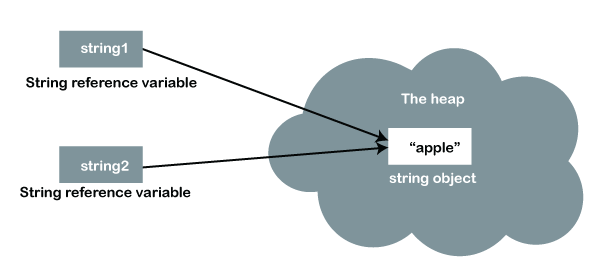Why Are Strings Immutable in Java? Safety And Security and Performance Conveniences
Why Are Strings Immutable in Java? Safety And Security and Performance Conveniences
Blog Article
What Is Immutable Strings and Exactly How It Functions
In the world of shows, understanding the idea of unalterable strings is vital for producing robust and safe applications. Unalterable strings refer to strings that can not be altered after they are developed, making certain information honesty and predictability within the code.
The Basics of Immutable Strings
Unalterable strings, as an essential principle in programs, are personality series that can not be altered when they are produced. This suggests that once a string is appointed a value, that value can not be changed. In languages like Python and Java, strings are unalterable objects, leading to numerous effects in terms of memory monitoring and information stability.
One of the crucial advantages of unalterable strings is that they offer a complacency in information control. Because the material of an unalterable string can not be modified, it ensures that the original data continues to be intact, decreasing the risk of unplanned adjustments throughout program execution (Why are strings immutable in Java?). This building also streamlines debugging processes, as designers can rely on that as soon as a string is specified, its worth will certainly not be accidentally changed
Furthermore, unalterable strings assist in effective memory use. When a brand-new string is developed based on an existing one, instead of changing the original string, the brand-new value is stored separately. This method improves efficiency by decreasing memory fragmentation and simplifying memory appropriation procedures. On the whole, recognizing the fundamentals of immutable strings is important for grasping programs principles and maximizing code performance.
Benefits of Unalterable Strings
Building upon the safety and efficiency advantages of unalterable strings, their benefits prolong to improving code dependability and simplifying concurrent shows tasks. By being immutable, strings can not be modified after development, which eliminates the danger of unexpected changes in the information they store. This inherent immutability makes sure that once a string is developed, its worth stays constant throughout the program's implementation, decreasing the chances of pests triggered by unexpected alterations.
In addition, immutable strings add to code reliability by making it much easier to reason concerning the state of a program. Since strings can not be altered, designers can trust that a string will certainly constantly hold the same worth, streamlining debugging and maintenance initiatives. This predictability causes a lot more reputable and steady codebases.

Application in Shows Languages
Within various programming languages, the consolidation of unalterable strings is a fundamental facet that influences just how information is dealt with and controlled within code structures. The execution of immutable strings differs across different programming languages, with each language offering its own systems to sustain this principle.

On the other hand, languages like C and C++ do not have integrated assistance for immutable strings. Developers in these languages have to by hand carry out immutability by enforcing regulations within their code to avoid straight modifications to string objects.
Finest Practices for Working With Immutable Strings
When taking care of immutable strings in programs languages like Java and Python, adhering to finest practices guarantees effective and secure information control. Among the essential ideal practices is to utilize StringBuilder or StringBuffer rather than directly adjusting strings, particularly when managing comprehensive concatenation procedures. These classes offer mutable alternatives for string adjustment, helping to avoid unnecessary memory allocations and enhancing efficiency.
In addition, when working with sensitive information such as passwords or API secrets, it is vital to avoid keeping them as simple text in unalterable strings. Using secure storage mechanisms like char varieties or specialized libraries for dealing with delicate details assists minimize safety and security threats associated with immutable strings.
Real-world Applications and Examples
Exploring practical implementations of unalterable strings in various sectors exposes their significant influence on data honesty and system dependability. In the medical care industry, unalterable strings play an important function in making sure the safety and security and confidentiality of person information. By avoiding unapproved adjustments to delicate info such as clinical documents and prescriptions, immutable strings aid maintain conformity with stringent personal privacy laws click now like HIPAA.
Financial establishments likewise gain from the unalterable nature of strings to boost the visite site safety of client information and purchase records. Immutable strings aid stop fraud and unapproved modifications to monetary info, supplying a durable defense versus cyber risks and ensuring the trust fund and self-confidence of customers.
Verdict
Best methods for functioning with unalterable strings consist of preventing straight modifications and using approaches that return brand-new string items. Real-world applications of immutable strings include data security, caching, and string manipulation jobs.
Unalterable strings refer to strings that can not be changed after they are created, guaranteeing information integrity and predictability within the code. When a brand-new string is developed based on an existing one, instead than changing the initial string, the brand-new value is kept individually.In languages like Java and Python, strings are immutable by default, suggesting that once a string object is created, its value can not be altered - Why are strings immutable in Java?. Best techniques for working with immutable strings include avoiding straight modifications and using methods that return new string items. Real-world applications of immutable strings include information encryption, caching, and string control tasks
Report this page